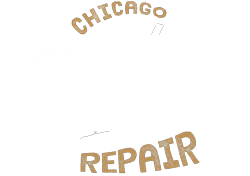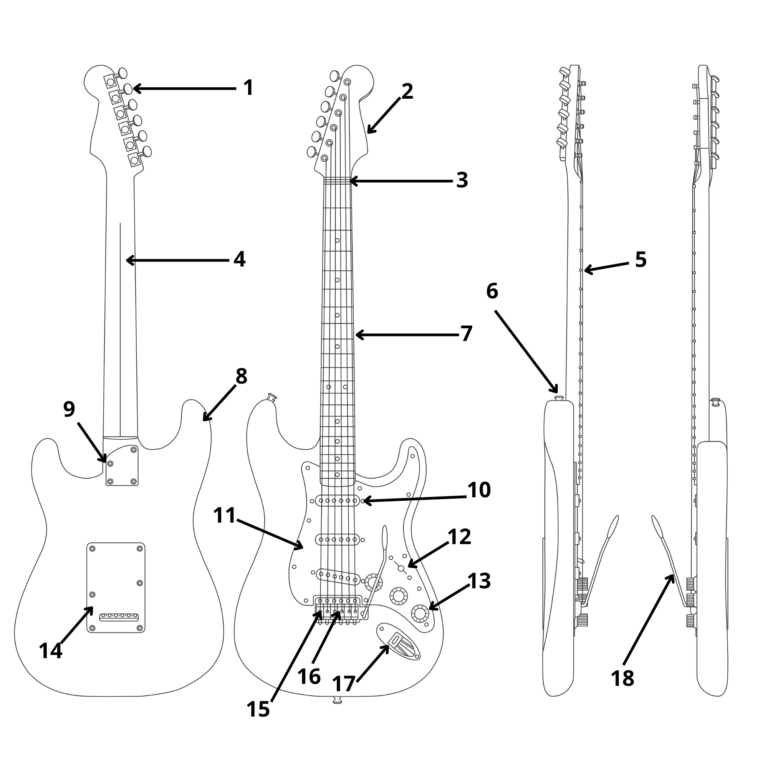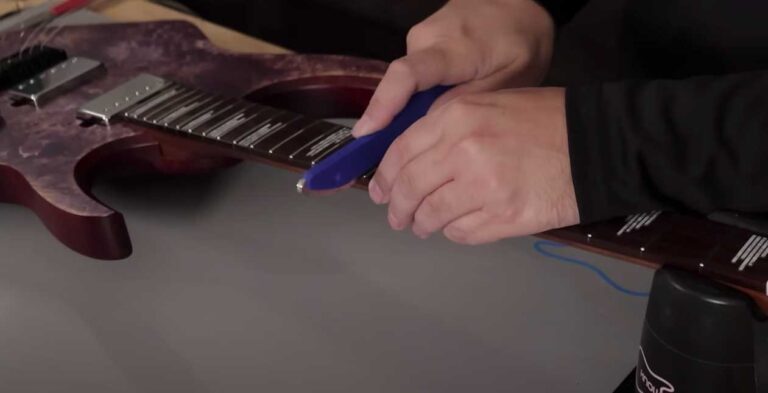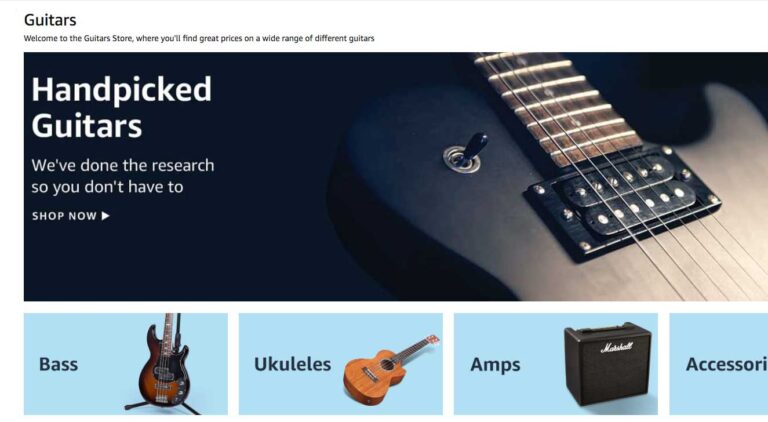Whether you’re a seasoned guitarist or just starting out, taking care of your instrument is essential for maintaining its playability and longevity. One crucial aspect of guitar maintenance is cleaning the fretboard. However, there’s a right way and a wrong way to do it. In this comprehensive guide, we’ll walk you through the proper—and safe—methods to clean your guitar fretboard, ensuring it stays in top condition for years to come.
Understanding Fretboard Maintenance
Fretboard cleaning is a delicate balance. Overzealous cleaning can lead to damage, while neglecting it can result in a buildup of grime and dirt. The key is to find the sweet spot that keeps your fretboard clean without causing harm. Let’s delve into the dos and don’ts of fretboard maintenance.
Say No to Solvents
One common mistake many guitarists make is using solvents to clean their fretboards. While it may seem like a quick fix for stubborn grime, solvents can actually do more harm than good. Not only can they damage the finish, but they can also compromise the integrity of the fretwork itself. Instead, opt for safer alternatives like guitar polish or lukewarm soapy water.
Mechanical Cleaning
For stubborn grime buildup, mechanical cleaning is often the most effective method. Carefully scraping the fretboard with a safe tool, such as a popsicle stick, can remove a significant amount of dirt without causing damage to the wood. Follow up with a silicone-free guitar cleaner and an old toothbrush to scrub away any remaining debris.
Polishing Frets
Polishing frets is another important step in fretboard maintenance, but it must be done with caution. While steel wool has long been a popular choice for polishing frets, it has its drawbacks, including the risk of scratching the fretboard. Instead, consider using nonwoven abrasive pads or foam-backed abrasive blocks for a safer alternative.
Oiling the Fretboard
Oiling the fretboard not only enhances its appearance but also helps protect it from moisture and wear. However, it’s essential to use oil sparingly to avoid over-saturation, which can lead to a host of problems, including loose frets and string damage. Stick to recommended oils like boiled linseed oil or specialized fretboard oil for best results.
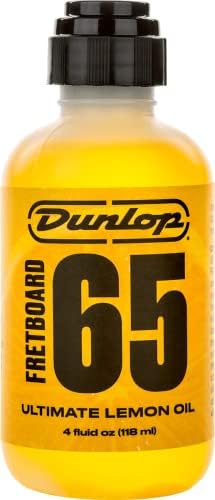
JIM DUNLOP 6554 Ultimate Lemon Oil for Fretboard Care – Grime Removal, Playability Enhancement, 4 oz.
JIM DUNLOP Ultimate Lemon Oil is the perfect solution for fretboard care, providing a comprehensive approach to instrument maintenance. Made in the United States, this product is designed to remove grime, enhance playability, and protect your instrument’s fretboard.
Tips for Specific Fretboard Materials
Different fretboard materials may require slightly different care routines. Here are some tips for cleaning fretboards made of common materials:
- Rosewood: Rosewood fretboards are relatively low-maintenance and typically only require occasional cleaning with a soft cloth and guitar cleaner.
- Ebony: Ebony fretboards can be cleaned in the same way as rosewood, but be cautious not to over-oil, as ebony tends to be less porous.
- Maple: Maple fretboards are often finished with lacquer, making them more resistant to dirt and grime. A soft cloth dampened with water is usually sufficient for cleaning.
Conclusion
Cleaning your guitar fretboard doesn’t have to be a daunting task. By following the proper techniques and using the right tools and products, you can keep your fretboard looking and sounding its best for years to come. Remember, a little maintenance goes a long way in preserving the playability and longevity of your instrument.
